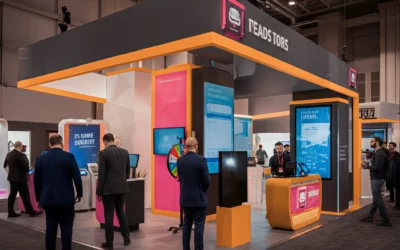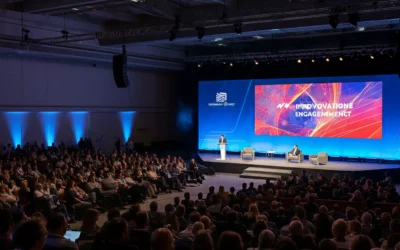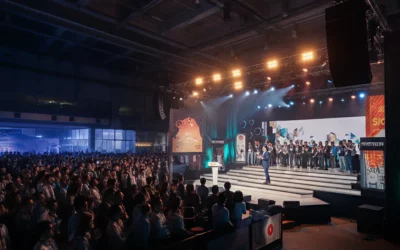In March of this year, something happened that none of us were prepared for: the world experienced a global pandemic and quickly went into lockdown. Since that time, event planners have been forced to scramble and adapt as best they can to organize events that followed important safety mandates.
Now, as our country begins to open back up, many planners wonder what events will look like in the post-pandemic world. It’s hard to determine how event planning will continue to evolve over the next year. What we can expect is there to be continued safety measures and protocols for Covid into the first half of 2021, and potentially even into the second half.
Covid Testing for Events – What is Rapid Testing?
As with just about everything that has to do with Covid-19, the information regarding testing seems to be constantly changing. While the CDC does not require testing of attendees before admitting them into an event, doing so may give attendees peace of mind, and this may help you sell more tickets.
Recently, more schools and businesses have been relying on something called “rapid testing” to safely open back up and stop outbreaks at the same time. And an NPR report quoted Dr. Ashish Jha, dean of the Brown School of Public Health, as saying that “rapid antigen testing will give us the capacity to actually play offense — go and hunt for the disease before it spreads to identify asymptomatic people before they spread it to others. It really becomes about preventing outbreaks — not just capturing them after they’ve occurred.”
But how exactly do these rapid tests work and are they accurate?
Rapid tests are usually antigen tests, meaning they search for antigens (the “stuff” that triggers an immune response). The traditional form of Covid testing has been molecular testing. But with molecular testing, you typically must wait days for your results, as the samples are sent out to a lab.
Rapid tests are done right on site. A mucus sample is taken either from the nose or throat and can then be analyzed immediately, without having to send that sample to a lab. The results are returned very quickly, sometimes in a matter of minutes.
How Accurate is Rapid Testing?
It should be stated that no test is ever 100% accurate. Having said that, of the two types of testing, molecular and antigen (rapid), molecular tests are considered to be more accurate, according to the latest research.
Harvard Medical School has stated that false negatives with molecular testing can be as low as 2% and as high as 37%, while false negatives for antigen tests can be as high as 50%. In general, some of the things that can affect the accuracy of any test include poor swabbing, mishandling of the sample and contamination.
But there are constantly new rapid tests coming into the market. One recently released rapid test is called the “Rapid RT-PCR Test.” Another name for this test is “Rapid molecular testing.” So these tests are going to give you a bit more accurate results than the rapid tests that look for antigens, but they can still be done right on site with results given within minutes.
There are currently many big pharma companies all working diligently to create even more accurate rapid tests that can be used in the near future.
The Wrap
As if event planners don’t wear enough hats, now they also have to act as medical experts! Virus testing can definitely feel like a confusing subject to try and get a firm grasp of.
Here’s the bottom line: We’re going to be dealing with this virus for the foreseeable future. Covid testing for events is just one way planners and business leaders can mitigate risk while still moving forward with business objectives.
You might also like…
Top 10 U.S. Meeting Destinations for 2026
Successful corporate events don’t just happen — they’re built on smart decisions, starting with...
The Trade Show Prep Guide: Boost ROI Like a Pro
Trade shows are a powerful way to elevate your brand's visibility, connect with potential...
President’s Club 2026 Ultimate Gift Guide
Luxury, Personalization, and Impact for Unforgettable Incentive Travel President’s Club isn’t just...
The Role of Corporate Event Managers is Evolving
Corporate events aren’t what they used to be. Gone are the days of basic cocktail hours and...
Revitalizing Sales Kickoffs: Strategic Insights for 2026
Gone are the days when Sales Kickoffs (SKOs) were just annual corporate pep talks. Today's SKOs...
Planning for Performance: The 2026 Guide to Mastering Incentive Travel
Here's Why Incentive Travel is Your Secret Weapon in 2026... Gone are the days when incentive...







